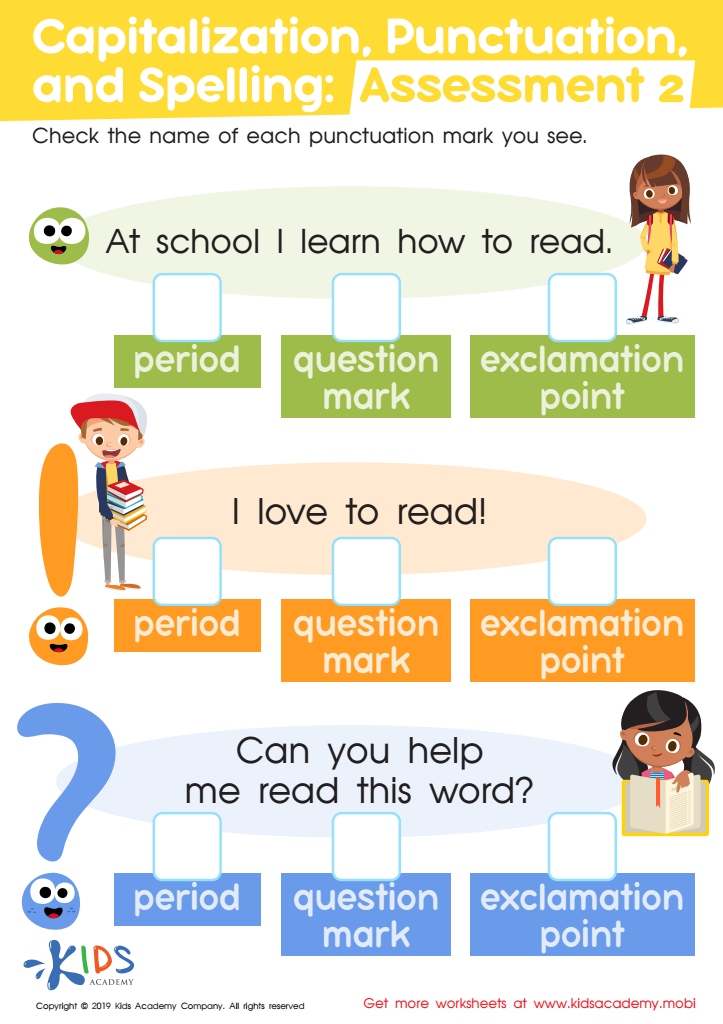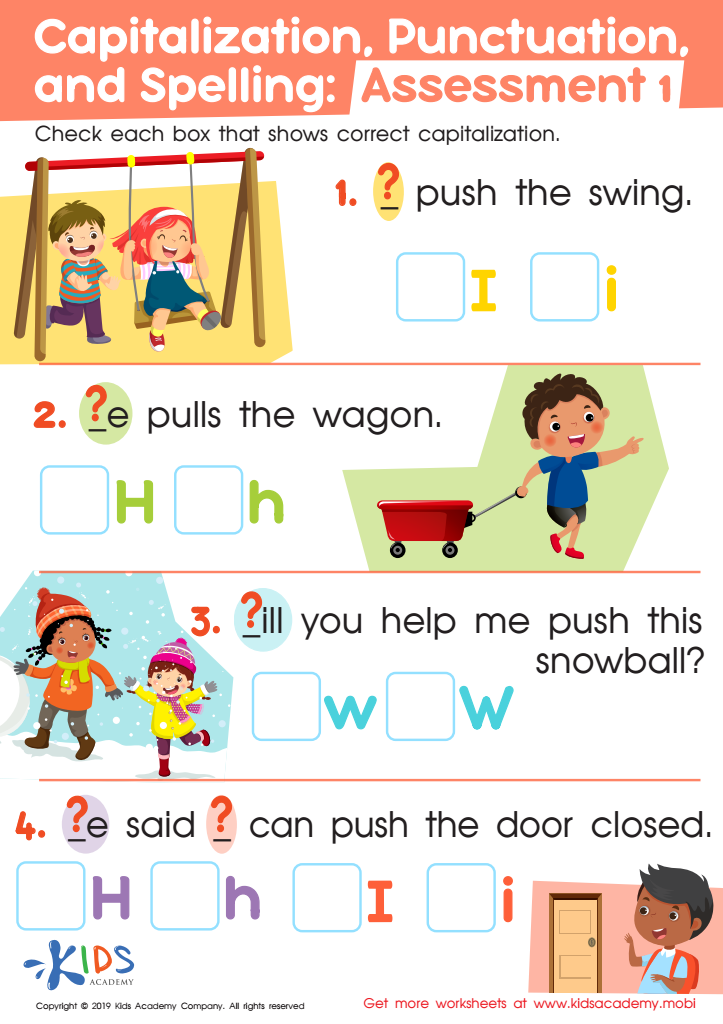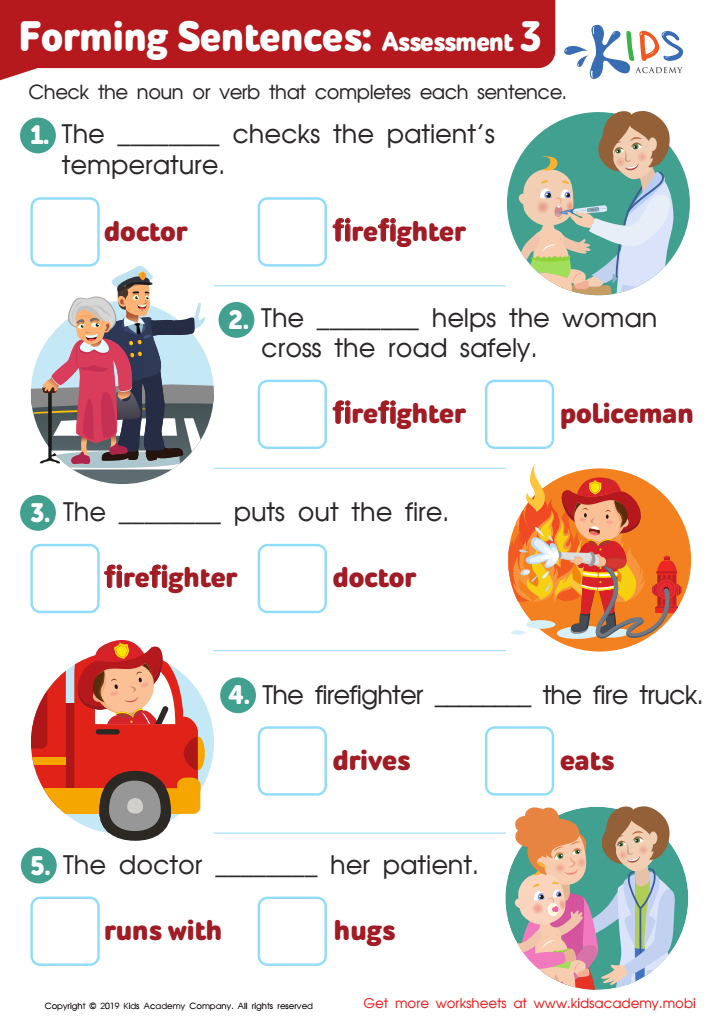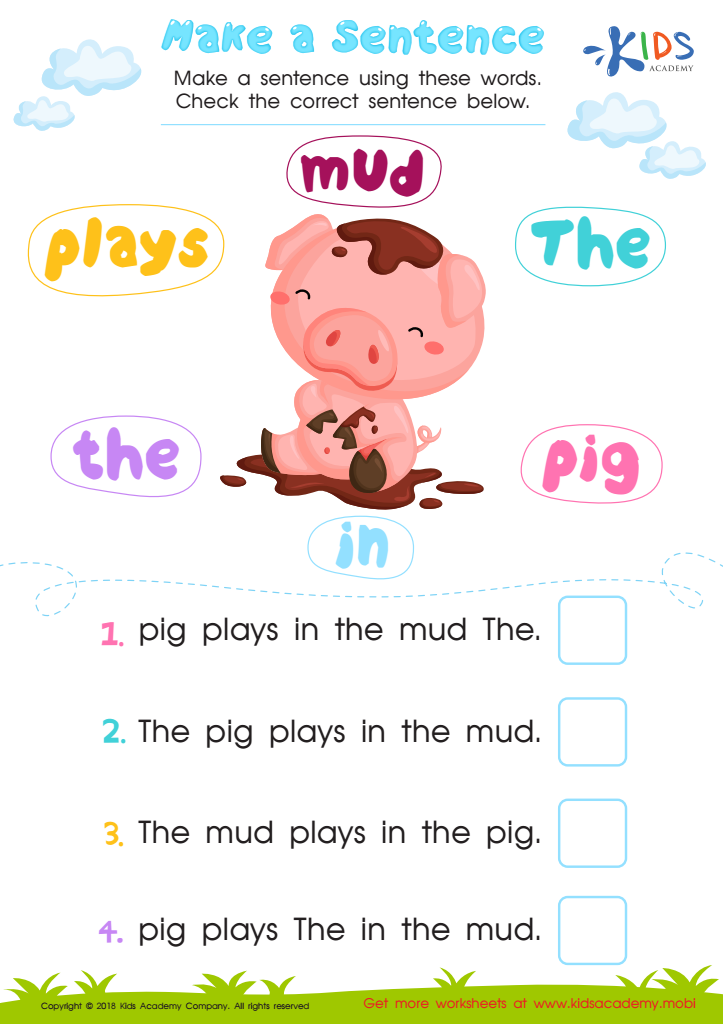Easy Writing worksheets activities for Ages 4-9
4 filtered results
-
From - To
Discover a fun and engaging collection of easy writing worksheets tailored specifically for children ages 4 to 9. Our carefully crafted activities support early writers by promoting creativity, vocabulary development, and essential sentence structure skills. With a variety of worksheets, kids can practice tracing letters, completing sentences, and writing short passages in a fun and interactive way. Our resources encourage learning through play, making literacy enjoyable! Perfect for homeschooling, classroom use, or extra practice at home, these worksheets are designed to help young learners build confidence in their writing abilities. Download and inspire a love for writing today!


Capitalization. Punctuation. Spelling: Assessment 2 Worksheet


Capitalization. Punctuation. Spelling: Assessment 1 Worksheet


Forming Sentences: Assessment 3 Worksheet


Assessment: Make a Sentence Worksheet
Easy writing activities for children aged 4-9 are crucial in fostering early literacy skills, creativity, and self-expression. At this developmental stage, children are rapidly acquiring language and cognitive abilities, and writing activities serve as an effective tool to support this growth. These activities can range from simple drawing accompanied by storytelling to basic sentence construction, helping children make connections between spoken and written language.
Engaging in easy writing tasks encourages fine motor skill development, as children practice letter formation and hand-eye coordination. This foundational skills’ practice not only enhances their writing abilities but also builds confidence in their expressive capabilities. Moreover, writing activities can promote critical thinking and problem-solving, as children learn to organize their thoughts and express them clearly.
For parents and teachers, incorporating easy writing activities nurtures a positive attitude towards education and literature. It enhances vocabulary, improves communication skills, and instills a lifelong love for writing and reading. Furthermore, these activities can be tailored to a child’s interests, making learning enjoyable and personal. Ultimately, caring about and prioritizing writing activities lays down a strong foundation for future academic success, creativity, and effective expression in children as they progress through their educational journey.
 Assign to My Students
Assign to My Students














